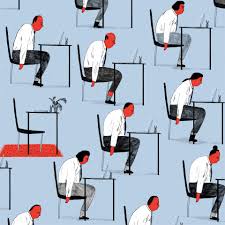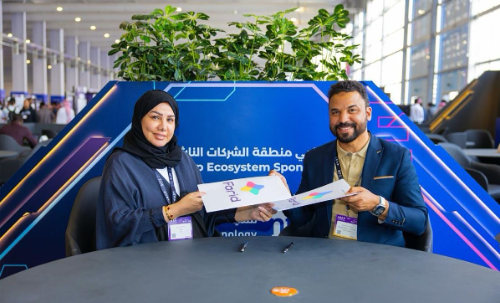How Workplace Stress is Eroding Productivity and Profit in African Businesses

In Africa's fast-paced and demanding corporate landscapes, the pursuit of growth and profitability often overshadows a silent but significant threat: workplace stress.
For far too long, stress has been dismissed as a personal issue, a sign of individual weakness, or simply an unavoidable part of a high-pressure job. Yet, a growing body of evidence, both globally and on the African continent, reveals that unmanaged workplace stress is a silent drain on business performance, eroding productivity, stifling innovation, and ultimately costing companies millions.
It's time for African businesses to recognize that investing in mental health is not a luxury, but a strategic necessity.
This neglect has tangible, and costly, consequences. Unmanaged workplace stress is a primary driver of employee burnout, leading to a rise in absenteeism and high staff turnover.
When valuable talent leaves due to a toxic work environment, companies face significant financial outlays for recruitment and training, not to mention the loss of institutional knowledge and momentum.
Furthermore, a stressed workforce is an uncreative one; chronic pressure stifles the innovative thinking and problem-solving skills that are essential for businesses to compete in a global market.
The ripple effect extends beyond the office, as stressed employees bring their burdens home, impacting family life and contributing to the broader social challenges facing communities across the continent.
The Physical and Psychological Scars of Unmanaged Stress.
Source: Google
The effects of unmanaged workplace stress extend far beyond a feeling of being overwhelmed. Chronic stress triggers a cascade of physiological and psychological responses that directly impair an employee's ability to perform their job effectively.
Psychologically, prolonged stress can lead to a state of burnout, a severe form of emotional, physical, and mental exhaustion. Employees suffering from burnout experience feelings of cynicism, detachment from their work, and a significant drop in motivation.
This leads to a decline in cognitive function, affecting an employee's ability to concentrate, make sound decisions, and solve problems creatively. A stressed mind is a less efficient mind, prone to errors, poor judgment, and a lack of innovative thinking.
Physically, the toll is just as severe. Stress can manifest in a range of symptoms, including headaches, muscular tension, chronic fatigue, and sleep disturbances like insomnia. This constant state of physical distress directly impacts job performance. An employee who is exhausted and in pain is far less likely to be engaged, productive, and present.
This physical and mental strain leads to increased absenteeism, as workers are forced to take sick days to recover from stress-related illnesses. The collective impact of this on a business is a significant loss of man-hours and a disruption of workflow that erodes profitability.
The Unique Stressors of the African Workplace.
Source: Google
While workplace stress is a global phenomenon, its causes in Africa often have unique dimensions rooted in the continent's socioeconomic realities. The most common sources of stress for African employees often include:
• Job Insecurity and Economic Instability: Many African economies are still vulnerable to global market fluctuations, leading to a climate of uncertainty. The fear of being laid off, or of a company restructuring, creates a constant state of anxiety that is a major stressor for employees.This is often compounded by personal financial burdens, as many workers support not just their immediate families but extended relatives as well.
• High Workload and Long Hours: A study in South Africa found that nearly 12% of the workforce averaged over 60 hours of work per week, making it one of the hardest-working countries in the world. This culture of "hustle" and overwork, often driven by a pressure to meet tight deadlines and high performance expectations, leaves little room for a healthy work-life balance.
• Lack of Control and Autonomy: In many hierarchical work environments, employees have little say in how their work is done.This lack of control, coupled with a lack of proper resources or equipment, can lead to feelings of powerlessness and frustration, which are significant contributors to stress.
• Poor Management and Communication: Ineffective leadership, a lack of clear communication, and a strained relationship with supervisors are also major stressors. Employees who feel their concerns are not heard or who are not given adequate support are more likely to experience burnout and disengagement.
Actionable Strategies for a Healthier Workplace.
The good news is that the erosion of productivity and profit due to stress is preventable. By shifting from a reactive to a proactive approach, African businesses can create a healthier, more resilient work environment that benefits both employees and the bottom line.

SOURCE: Google
For Employers, the focus should be on creating a supportive culture:
• Prioritize Mental Health: The first step is to destigmatize mental health in the workplace. Companies should openly acknowledge that stress and anxiety are real issues and provide access to resources like Employee Assistance Programs (EAPs) or partnerships with mental health professionals. This sends a clear message that employee well-being is a priority.
• Foster a Culture of Communication: Encourage regular, open dialogue between managers and employees. Supervisors should be trained to identify signs of stress and to have empathetic conversations with their team members. Providing opportunities for employees to give feedback and voice their concerns can help address stressors before they become critical issues.
• Implement Flexible Work Arrangements: The pandemic has shown that remote and hybrid work models can be highly effective. Offering flexible hours or the option to work from home can give employees a greater sense of control over their work-life balance, reducing stress and improving morale.
• Invest in Professional Development: Providing opportunities for skill development and career advancement can boost an employee's sense of purpose and reduce feelings of job insecurity. Workshops on topics like time management, stress reduction techniques, and emotional intelligence can equip employees with the practical skills they need to navigate a high-pressure environment.
For Employees, empowerment is key to managing stress:
• Set Boundaries: Employees must learn to establish clear boundaries between their work and personal lives.This means logging off at a reasonable time, avoiding checking work emails during non-working hours, and using their leave days to rest and recharge.
• Practice Mindfulness and Self-Care: Simple practices like mindfulness exercises, regular physical activity, and ensuring adequate sleep can be powerful tools for managing stress.
• Seek Support: Employees should not be afraid to lean on their colleagues, managers, or professional counselors for support when they are feeling overwhelmed. Building a support network is crucial for resilience.
By embracing these strategies, African businesses can do more than just improve employee well-being; they can unlock a new level of productivity, innovation, and profitability.
The cost of inaction is too high. It's time to break the cycle of stress and build a more resilient and humane future for the African workforce.
You may also like...
Emmys 2025 Red Carpet: The Most Stunning Celebrity Looks That Broke the Internet!

The Emmys red carpet redefined celebrity fashion, moving beyond traditional attire to embrace daring and expressive look...
Davido Takes Center Stage: Exclusive Nigerian Act for Coachella 2026!

Coachella has revealed its highly anticipated 2026 lineup, featuring headliners Justin Bieber, Sabrina Carpenter, Karol ...
M&S Autumn Collection Promises High Street Revolution with Style & Value!

Marks & Spencer is shaking up the High Street with its most daring and eclectic fashion collection, the "She's Back" cam...
Nigeria Fuels African Flight Boom: Driving TAAG Angola's Bold Expansion

TAAG Angola Airlines is significantly expanding its operations in Nigeria, aiming to establish Angola as a key aviation ...
Africa's Skies Soar: Aero Contractors Unveils Game-Changing Aviation Maintenance Hub

Aero Contractors, Nigeria's oldest aviation company, is leading innovation in Africa's aviation sector through its advan...
Top House Leader Mike Johnson Declares Shared Future for Congress and Crypto

House Speaker Mike Johnson has pledged House Republicans' close collaboration with the Bitcoin and crypto industry to fo...
Egyptian Innovator Duaya Snaps Up EXMGO, Revolutionizing Pharmacy Tech!

Egypt's healthtech scene sees a significant development as Duaya acquires local SaaS provider EXMGO in a six-figure deal...
Egyptian Startup Farid Storms Saudi Market with $1.3M Expansion Deal!

Egyptian edtech startup Farid has expanded its operations into Saudi Arabia, establishing a central office in Riyadh and...

